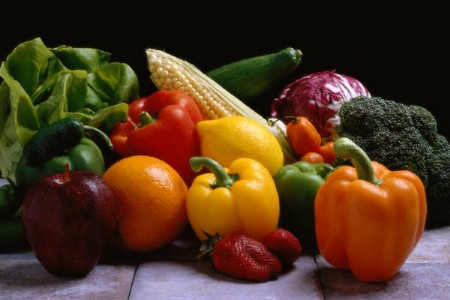By Vanessa Chrisman, RD, CLE, clinical dietitian at CHOC Children’s 
Organic foods continue to be all the rage. They can be found in most grocery stores and are often touted as being healthier than conventional foods. Along with those health benefits, a higher price tag is often expected as well.
So, what is organic anyway? To carry an organic label in the U.S., foods must be grown without synthetic pesticides, growth hormones, antibiotics, genetic engineering or chemical fertilizers.
While many people will agree that organic foods are more nutritious than conventionally grown foods, the verdict is still out. The majority of scientific studies to date have been unable to show a significant difference between the nutrients found in organic and conventional foods.
One recent meta-analysis of 343 studies in the British Journal of Nutrition did show increased amounts of antioxidants and lower levels of pesticides in organic foods. In specific foods, there is some scientific evidence that organic foods are more nutrient-rich. For example, organic milk has been found to contain more omega 3 fatty acids, CLA, and vitamins than traditional cow’s milk. Also, organic tomatoes also have been found to contain much higher levels of antioxidants.
While the nutrients in organic foods may not be that different from conventional foods, there are other reasons why people would choose organic foods.
Environmental safety is one of the leading causes why some people buy organic. Organic farming practices are designed to benefit the environment by conserving soil and water and reducing pollution.
Other potential benefits include:
- Antioxidant capacity
- Pesticide reduction
- Stronger immune system
- Overall health
- Better taste
- Animal welfare
- GMO free
- No food additives
- No growth hormone or antibiotics added
In 2012, the American Academy of Pediatrics (AAP) issued a report that children have “unique susceptibilities to potential toxicity (of pesticide residues).” The AAP cited research that linked pesticide exposures – both prenatally and in early childhood – with pediatric cancers, decreased cognitive function and behavioral problems. To help minimize pesticide exposure, the AAP recommends using the EWG’s (Environmental Working Group) Shopper’s Guide to Pesticides in Produce.
According to the EWG, the key is to prioritize organic food purchases according to the level of pesticide residues commonly found on foods. First, you have the “Dirty Dozen.” These fruits/vegetables have the highest amount of pesticide residue and should be bought organic if possible.
The Dirty Dozen: apples, strawberries, grapes, celery, spinach, peaches, sweet bell peppers, imported nectarines, cucumbers, cherry tomatoes, imported snap peas, potatoes, plus leafy greens and hot peppers
On the other end of the spectrum, you have the “Clean Fifteen.” These fruits/vegetables have lower amounts of pesticide residues and can be bought in conventional form.
The Clean Fifteen: avocados, sweet corn, pineapple, cabbage, sweet peas, onions, asparagus, mango, papaya, kiwi, eggplant, grapefruit, cantaloupe, cauliflower, sweet potato
More tips to buy organic foods and still be budget-conscious:
- Shop at local farmers markets. Look for locally grown produce as well as organic.
- Join a CSA – community supported agricultural program. A CSA can deliver a box of seasonal organic fruits/vegetables to your doorstep on a regular basis.
- Join a natural foods co-op or a buying club.
- Shop for produce seasonally and buy in bulk. Some produce can be frozen.
- Grow your own fruits and vegetables at home.
- Shop online for deals and look for coupons/sales.
- Do your own food preparation.
In the end, the choice is yours to buy all organic foods, some organic foods, or no organic foods. Based off the research, some organic foods may be healthier than their conventionally grown counterparts. On the other hand, some conventional foods may be just as healthy as organic foods. Being an informed shopper can help you make healthy choices with the foods that you buy. Your health and the health of your family will benefit for years to come.





